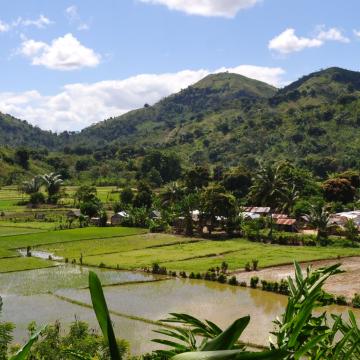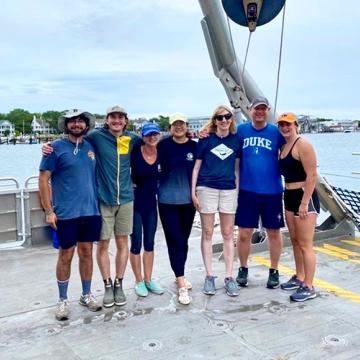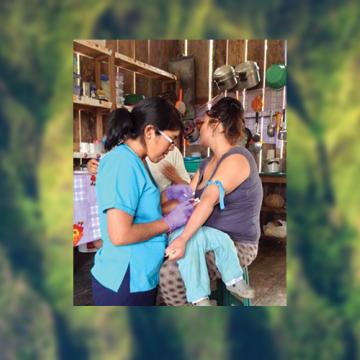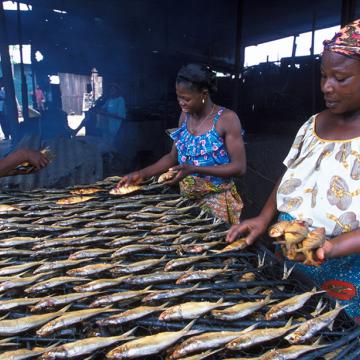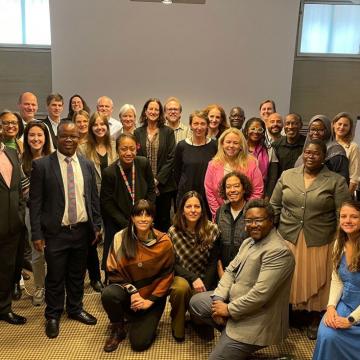-
NewsSmall-scale fisheries play a significant but overlooked role in global fisheries production and are key to addressing hunger and malnutrition while supporting livelihoods around the world, according to research featured on the cover of Nature.
-
NewsKidney disease is typically linked to conditions like diabetes and high blood pressure, which gradually wear down the kidneys’ delicate systems that keep the body in balance. But the communities that Duke University researchers Nishad Jayasundara , PhD, and nephrologist Anna Strasma , MD, study are facing a different problem.
-
NewsModeling experiments show Pacific warm and cold patches persisted even when continents were in different places
-
NewsMeet the Hunt Lab, learn more about its research focus, a lab member's experience in the lab and the opportunities the lab offers Duke students.
-
NewsMeet the Stapleton Lab, learn more about its research focus, a postdoc's experience in the lab and the opportunities the lab offers Duke students.
-
NewsGulf War Illness (GWI), which affects approximately 250,000 U.S. veterans, has been found to significantly reduce the ability of white blood cells to make energy and creates a measurable biochemical difference in veterans who have the disease. The finding comes from a physician who noticed GWI symptoms paralleled those of mitochondrial diseases. Analysis revealed significantly lower levels of extracellular acidification and oxygen consumption in the white blood cells of veterans with GWI.
-
NewsXavier Basurto is broadly interested in how people in small communities successfully organize themselves for collective action. His recent talk described his work in advancing the understanding of non-colonialist sustainability science: the prospects and limitations of self-organization, or self-governance, for social-ecological sustainability, particularly in the Global South.
-
NewsA new study on the impacts of prenatal exposure to toxic metals linked to artisanal gold mining and other sources in Madre de Dios, Peru, finds that mercury has no direct effect on a newborn’s birth weight or gestational age. It’s a different story, though, for lead, which may also be released by mining operations but more likely is consumed when people eat wild game that inadvertently still contains small bullet fragments.
-
NewsDuke University scientists have received a five-year, $2.6 million grant from the National Institute of Environmental Health Sciences (NIEHS) to study molecular mechanisms that can help our bodies fight respiratory inflammation caused by air pollution.
-
NewsPeople in areas where drinking water is contaminated with PFAS often want to know their PFAS blood levels but have trouble gaining access to reliable testing, which traditionally involves having their blood drawn by a medical professional.
-
NewsA new study by researchers at Penn State University, Duke University, and the University of Saskatchewan suggests not all of the nearly 2,000 species of ground beetles found in North America will thrive under climate change. Some could decline. And that could have far-reaching implications for agriculture, forestry, and conservation.
-
NewsThe Illuminating Hidden Harvests Report culminates a collaborative research effort led by the Food and Agriculture Organization of the United Nations (FAO), Duke University and WorldFish examining the multifaceted contributions of small-scale fisheries to sustainable development.
-
NewsDuke scholars and students were among more than 800 experts who contributed to global study calling for policymakers to consider contributions of small fisheries

